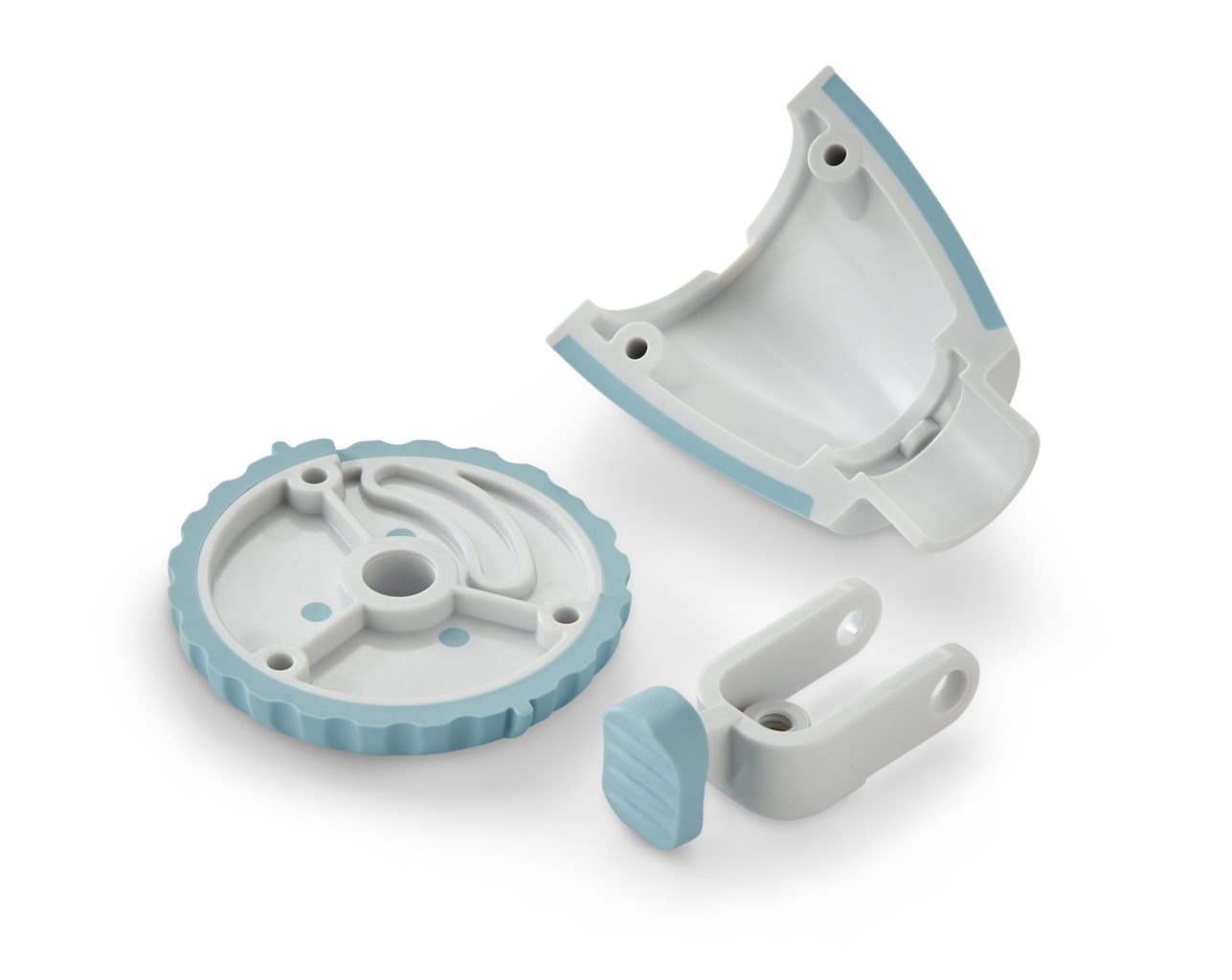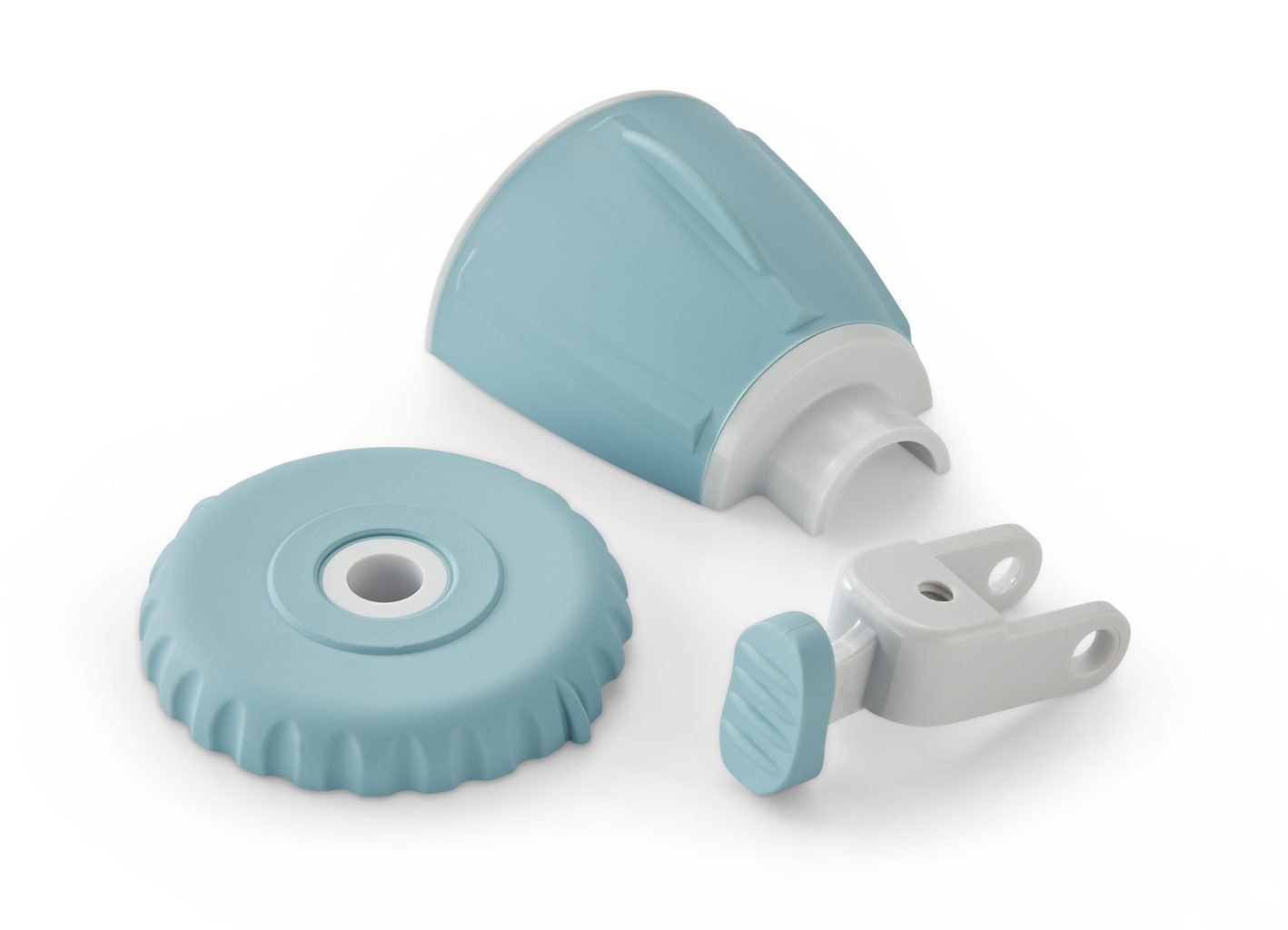
Application
Implant Tools for Cardiovascular Surgical Applications
Minnesota Rubber & Plastics cardiovascular components and surgical instruments feature ergonomic designs and surface areas that make it easy for surgeons to control the tools by grasping the wheel and release switch. The instrument’s molded parts are created with a polycarbonate resin that withstands ETO sterilization.
Our design team leveraged DFM expertise and created the tool’s internal components and snap-fit design. The challenge was squeezing several components to fit perfectly and operate flawlessly in a compact tool. A Santoprene elastomer formulation was used to overmold each component since the tool is designed for chest cavity insertion. Additionally, colorization can be used to complement your company’s branding requirements.
The development of this precision instrument demanded component level accuracy as well as DFM expertise and deep experience in advanced materials and injection molding.
Benefits
Robust Materials Hold up to Sterilization and Surgical Environments
Implant tools, like most medical devices, have restrictions and functional requirements that limit material choices. All materials used in the steerable epicardial lead implant device, for example, must hold up to ETO sterilization and demanding surgical procedures.
Minnesota Rubber & Plastics works with customers to design and develop high-quality and reliable products to access critical care procedures. From lead implant tools to introducers and sheaths that provide entry points for lead placement or other vascular procedures, our product development engineers collaborate with you to create custom designs and materials for cardiovascular applications.
In fact, our technical team of engineers and scientists develop and refine solutions for the most demanding applications—including integrated assemblies and LSR hemostasis slit valves. Years of product experience and leveraging tools like FEA analysis, Moldflow and DFM, separate us from competing firms.
